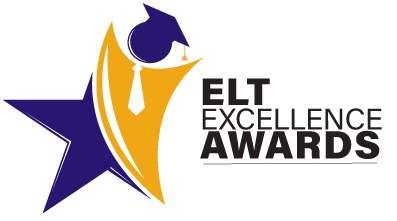Welcome Judges
TEACHING ADULTS WITH EMPATHY
Nomination Description
Project-based learning (PBL) can be a powerful approach in teaching English as a Foreign Language (EFL), especially when combined with empathy. In PBL, learners engage in a long-term project that requires them to use English in real-world situations, allowing them to connect language learning with their own experiences, goals, and interests. When paired with an empathetic teaching approach, project-based lessons can not only promote language acquisition but also enhance student motivation, engagement, and self-confidence.
Here’s how I integrate empathy into project-based lessons for EFL learners:
Personalized Projects: I Start by understanding the interests, backgrounds, and motivations of my students. I allow them to choose or suggest project topics that resonate with them, whether it’s related to their work, hobbies, or personal goals. This helps make the project relevant and engaging.
Encourage Mistakes as Opportunities: In project-based learning, students often experiment with language in ways that feel more natural. Creating a safe, non-judgmental space where students can take risks without fear of criticism is key to fostering a supportive atmosphere.
Celebrate Effort Over Perfection: I recognize and celebrate students’ efforts and progress, even when the final product isn’t perfect. This builds their confidence and encourages them to keep pushing through challenges.
Authentic Context:I ensure that the project reflects real-world language use that students will encounter outside the classroom. For instance, a project could involve designing a presentation on a topic of personal interest, conducting interviews, or creating a marketing plan in English. This makes the learning process feel more purposeful and connected to their everyday lives.
Problem-Solving and Critical Thinking: Encourage students to solve real-world problems through their projects. For example, if students are working on a community-based project, such as designing a campaign or creating a guide for newcomers, it’s a great way to integrate empathy by thinking about how their work will impact others.
Creative Projects: I allow students the freedom to express their ideas creatively, such as through videos, artwork, or interactive presentations. This empowers them to bring their unique personalities and perspectives into their work, fostering a sense of ownership and pride in the project.
Diverse Output Options: Some students may feel more comfortable with written tasks, while others might prefer oral presentations or digital content. Offering a variety of ways to present the final project allows students to showcase their strengths and feel confident in their work.
Holistic Assessment: When evaluating the project, I take a holistic approach that considers the process as much as the final product. I focus on students’ engagement, collaboration, and effort. This approach acknowledges that language learning is a journey and that each learner progresses at their own pace.
Constructive Feedback: I provide feedback that is both constructive and empathetic. I highlight areas for improvement, but also recognize the effort and creativity involved. This helps students see their growth and feel encouraged to continue.
When project-based learning is combined with empathy, it creates a dynamic and supportive environment where adult EFL learners can thrive. Empathy ensures that students feel respected, valued, and motivated to take ownership of their learning, while PBL provides meaningful, real-world experiences that enhance language acquisition. This approach encourages learners to engage deeply with both the language and their peers, fostering a sense of community, respect, and shared learning. Last but not least it boosts their confidence.
Διοργάνωση

Should you need further assistance please contact
Athinia Koutouvali, athina.k@eltnews.gr, T: +30 (0) 210 6712 991.
© 2025 ELT Excellence Awards. All Rights Reserved – Terms & Conditions








